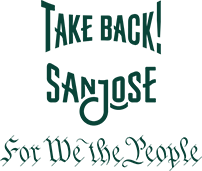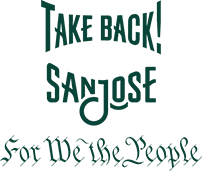Property taxes are uniquely burdensome because they tax homeowners repeatedly for something they already own, says HJTA’s Susan Shelley, who asks why the revenue can’t be limited to property-related services. But as Prop 13 protections are eroded by parcel taxes/bonds, local gov’ts—flush with extra dollars—often spend outside their scope. In this Opp Now exclusive Q&A, Shelley forecasts the next major move to defend Prop 13.
Opportunity Now: This year, Howard Jarvis Taxpayers Association helped defend homeowners against Prop 5, which you say was an attack on Proposition 13. What more do you think could be done to protect Prop 13?
Susan Shelley: We’ll continue to inform the legislators, voters, and media that Prop 13 is an extremely important taxpayer protection. It allows people to have certainty about what their property taxes will be from year to year.Sign up to receive updates on Opp Now articles. Click HERE.
Apart from bonds and parcel taxes that voters approve, you know what your basic property tax is going to be. That creates stability, not just for the property owners, but also for the local governments.
While other forms of taxation in California are volatile, property tax revenue rises steadily. That’s because property turns over and is reassessed, and the revenue goes up. So even in a downturn, you have people who are paying an additional 2% because of inflation every year. It protects the property owner, and it protects the local government from volatility. It’s excellent public policy.
ON: But local bonds and special taxes get around Prop 13 protections. Can’t these start accumulating to disrupt the predictability and affordability of home ownership? It’s as if local governments who pass too many bonds and parcel taxes could become victims of their own success.
SS: Right: if they got their way, if they could raise all these extra taxes more easily. It would be really devastating for the people of California, as it was in the mid-1970s, when people were being taxed out of their own property.
The thing about property taxes is that this is a tax on what you already own. This is not like an income tax, which is once on the way in. Nor is it like a sales tax, which is once on the way out. This is every year as a condition of keeping what you already own. It’s reckless to raise that tax just because the government doesn’t want to spend existing tax money intelligently and responsibly. They keep borrowing for their priorities, and it’s not going well for the people of California.
ON: A lot of people think bonds are necessary for the greater good, even though it means raising the cost of owning a home.
SS: I think the original premise is that you’re paying for property-related services like fire protection, water infrastructure, and roads. But then they start using bonds for all different kinds of things, like climate initiatives and bike lanes to benefit the globe.
Prop 5 would have allowed regional associations of governments to put bonds on the ballot to borrow money for infrastructure to meet climate goals. That’s not exactly a property-related service. It becomes less defensible to tax property owners for things that have a global purpose and not a local purpose.
And furthermore, property taxes really are paid by everyone in the area because increases are assessed on apartment buildings and commercial property; so it affects rents and retail prices.
ON: You mentioned earlier that if the Taxpayer Protection Act was allowed on the ballot, it likely would have succeeded and would have closed the Upland loophole. In other words, LA County Fire District’s Measure E wouldn’t have raised the parcel tax on property owners.
SS: We think the lower vote threshold for citizens’ initiative tax increases is very questionable; and certainly, we’re looking at doing another Taxpayer Protection Act because this is not an acceptable way to interpret the Constitution of California.
ON: Another Taxpayer Protection Act? How will it get on the ballot this time?
SS: All the attorneys are looking very closely at the decision and working on that.
I’m not an attorney. But the reasoning for taking it off the ballot was that it did so much that it was a revision of the Constitution, not an amendment to the Constitution. And that’s a subjective judgment with which we disagree.
As I understand it, the Supreme Court left an awful lot of wiggle room and gave themselves sort of a subjective power to attack the initiative process.
I would say there’s an excellent chance that a Taxpayer Protection Act will get on the ballot.
ON: Do you think local governments are chastened by the recent election results?
SS: I hope so. I hope they understand that the people of California are very burdened financially by rising electricity bills, water bills, grocery bills, property taxes, and gasoline costs. Hidden taxes like this low-carbon fuel standard are going to raise gasoline prices again. It’s reckless to keep putting these sugar-coated bonds on the ballot that try to say how wonderful everything will be without explaining fully what it’s going to cost.
ON: BAHFA must be feeling pretty discouraged. Not only did they have to pull RM4 off the ballot, but the next bond won’t benefit from a lowered threshold because Prop 5 didn’t pass. What do you think their next move is going to be?
SS: I’m sure that they are going to look at doing a bond again. But they should be looking to demonstrate to the voters that they can do small things well before they come to them with a $20 billion housing bond proposal. If they do smaller bonds and demonstrate success, I think voters would be more amenable to this kind of financing.
ON: Overall, do you think Californians are tired of paying taxes?
SS: Every poll shows that they feel they are overtaxed and the government wastes too much money.

